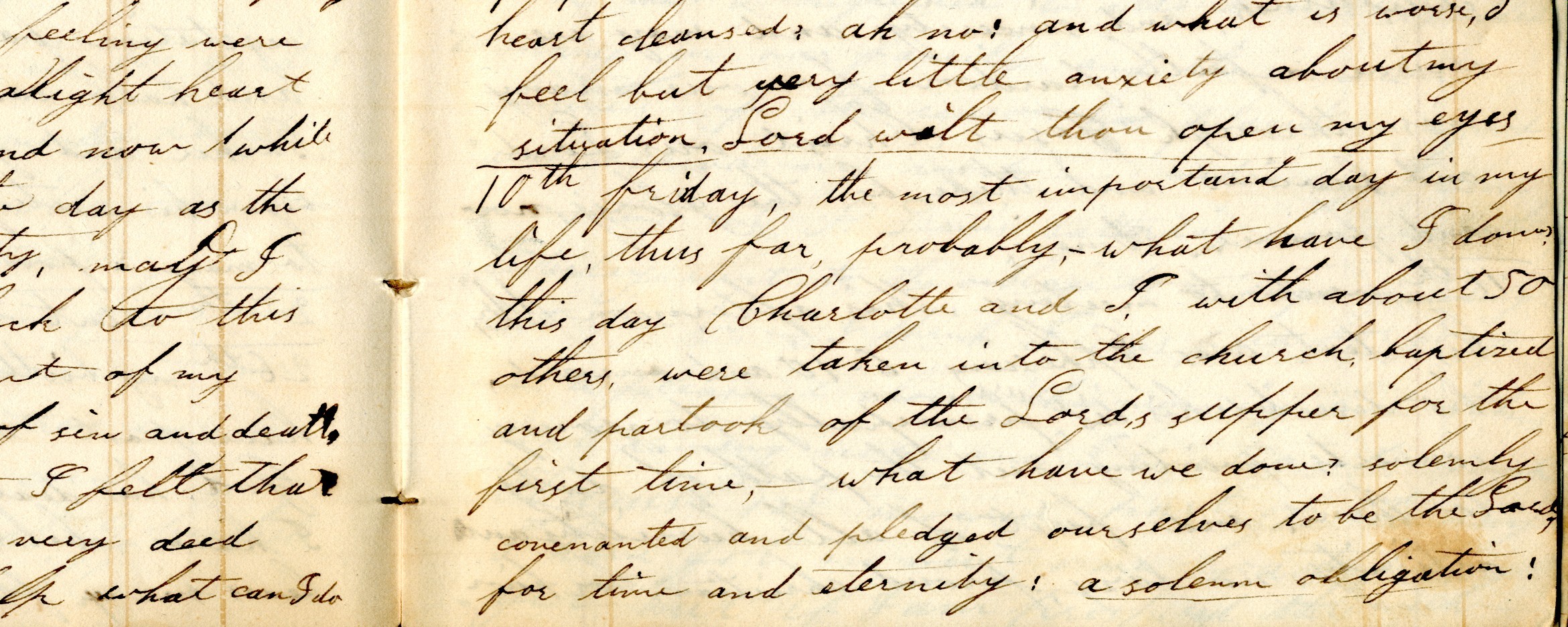Erastus P. Williams Diaries

Erastus P. Williams was born in Barnston, Québec on June 26, 1809, the son of Polydore and Percia (Davis) Williams. When he was 2 1/2, the family moved to Colebrook, New Hampshire, and in 1813 to Plainfield, Vermont. After 3 years, the family moved to Royalton, Vermont, where they remained. At age fifteen, Erastus began to work as a farm laborer by the month, and, after 10 years, he married Charlotte Safford, the daughter of Nathan and Anna (Hopson) Safford, on February 24, 1835. Erastus and Charlotte had five children: Persia Anna (1836-1922), Cyrus Safford (b. August 8, 1838-d. October 13, 1838), Mary Elizabeth (b. 1839), Laura Charlotte (b. 1841), Carlos Erastus (b. 1843). Erastus P. Williams died November 11, 1844.
The diaries begin on January 1, 1830, continuing with regular entries until April 2, 1843, documenting the life of a young Vermont farm laborer in Royalton, Vermont. In his diaries, Williams reports on his daily chores, his attendance at singing and spelling schools, his participation in militia, and his religious and social life. Williams notes the weather each day in general terms, and also gives notice of births and deaths in Royalton and the surrounding towns. He also mentions some of the movements of the time, including anti-slavery, temperance, and anti-masonry.
As the years progress, Williams' entries become more lengthy and contain more ruminations on salvation, including a description of attending a Shaker meeting in Enfield, New Hampshire, and entries describing a religious revival in Royalton in 1835. On July 10, 1835, during a revival led by Jedediah Burchard, Erastus, his wife, and fifty others, "...were taken into the church, baptized and partook of the Lord's supper for the first time."
After Erastus' marriage in 1835, he bought his own farm. His entries about farm work change to complaints about the difficulties of completing his chores and, towards the end of his life, financial worries. Towards the end of the diaries, Erastus writes a brief autobiography, at the end of which, in his wife's hand, is written a short notice of his death.